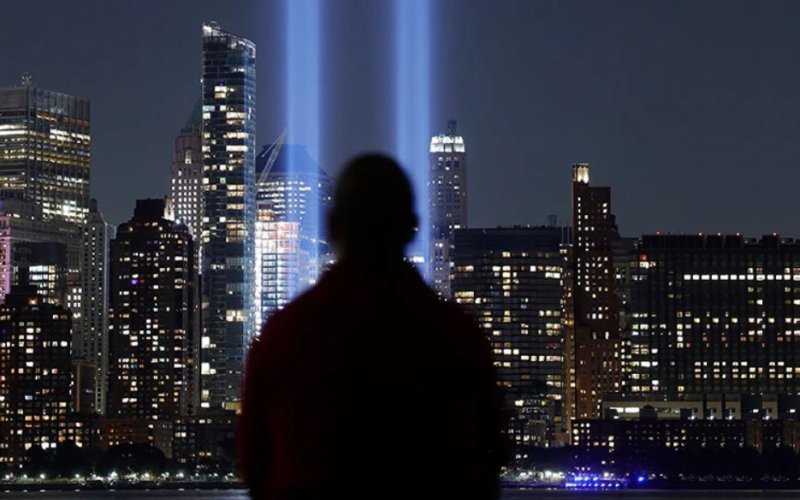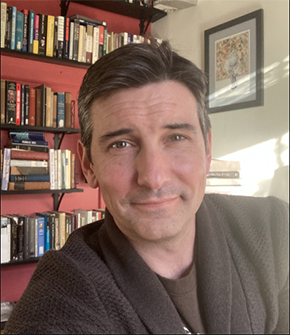Joint CAS, CEHC & SPH project explores the past, reimagines the future

ALBANY, N.Y. (April 19, 2022) — Everything has a past, said Associate Professor of History Ryan Irwin. “Because history illuminates change over time, it can reveal the nature of progress — and helps us become better stewards of a shared future.”

If true, historical thinking — as opposed to simple memorization of historical facts — has immense value in all disciplines, including the professional schools. “History is like the root system of a public institution,” said Irwin. “It anchors our understanding of our present-day problems.”
With this premise in mind, the National Endowment for the Humanities (NEH) approved a pilot program in May 2021, entitled "Exploring the Past, Reimagining the Future." In the past year, the initiative has targeted nearly 2,000 majors from the College of Arts and Sciences (CAS), the College of Emergency Preparedness, Homeland Security and Cybersecurity (CEHC) and the School of Public Health (SPH). It has also looked to reach non-majors in general education courses.
The grant originated in 2020 from collaboration between historians Sheila Curran Bernard and Kendra Smith-Howard, and CEHC Professor Eric Stern. With help from CEHC Vice Dean Jennifer Goodall, they crafted an NEH proposal that would incorporate historical methodology into the CEHC and SPH undergraduate curricula.
Irwin was brought on to help implement to project in summer 2021, and he explains that "Exploring the Past, Reimagining the Future" has several moving parts. The key courses and projects:
- HST 202: Not Even Past. Launched last summer, this new Gen-Ed class tackles contemporary problems from a historical perspective. In the fall, Associate Professor Mitch Aso used the course to explore how humanity has navigated past global pandemics.
- Common Problems Project (CP2). Last fall, James Lizska, a national leader in CP2, explained how the project works in a Zoom workshop. This spring, History Professor Alec Dawson paired "Race and Racism in the Americas" with Public Health Professor Janine Jurkowski’s "Promoting Healthy People." They tackled the same problem through different disciplinary prisms, while bringing students together to discuss the problem on common ground.
- Gaming in the Classroom. On March 25 and April 1, almost two dozen faculty from CAS and CEHC hosted a roundtable discussion about the merits and meaning of gaming. Associate professor Maeve Kane of History led the participants in a simulation that brought this methodology to life. CEHC professor Michael Leczinsky led a follow-through session about resources to incorporate gaming in the classroom.
- A Special Student Poster Presentation. Part of the Warren Roberts Research Symposium on April 29, students representing "Exploring the Past, Reimagining the Future" will exhibit how they tackle contemporary problems historically in their own research. Winning projects will receive NEH-funded prizes.
- Center for Human Services Research. "Exploring the Past, Reimagining the Future" has partnered throughout the year with the center, running a series of surveys collecting data on how students perceive historical thinking. “This data will help us contextualize and comprehend the current trends away from historical thinking,” said Irwin, who believes the data may distinguish the project’s upcoming proposal to the NEH for an implementation grant.
The project’s directors are now designing curricula for 2022-23. Among the offerings will be Irwin teaching a Not Even Past course about the War on Terror, and professors Kori Graves of History and Goodall of CEHC combining for a CP2 project on marriage, family and public health. “With more support from the NEH,” Irwin says, “we’re hopeful we can continue this project and build more interdisciplinary bridges on campus.”




